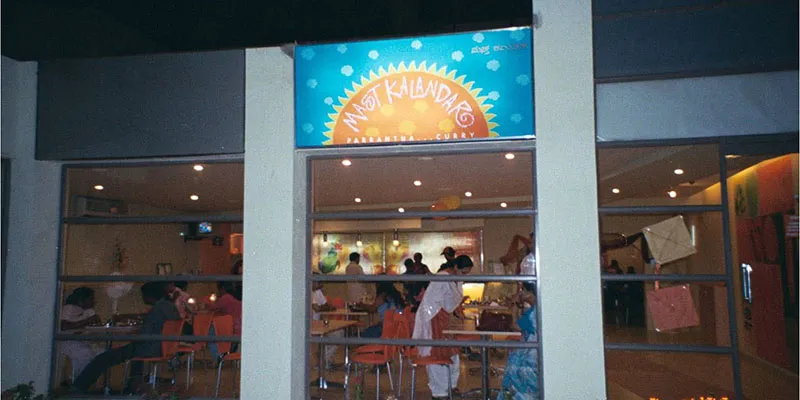Nine years on, Mast Kalandar targets overseas markets, retail
After taking south India by storm with their north Indian food, Mast Kalandar’s Gaurav Jain and Pallavi Gupta are now looking overseas for expanding their popular chain of eateries. The company is also planning to offer the niche products available for sale in their outlets to supermarkets and other stores, Gaurav says. The story of how this IT couple from northern India, starved for home food amid a busy work schedule hit upon the idea of offering combination Indian meals in a fast food format, is well documented. Today, Mast Kalandar has 71 branches spread across 4 cities and continues to look at new markets.

The plan to look overseas will come as no surprise. It was after all during a posting in Australia that Gaurav and Pallavi came across the concept of serving each dish as a complete meal, something Mast Kalandar pioneered in India. “We don’t have anything in the near future but we do have a plan to get into some cities like London, Sydney, Singapore, Kuala Lumpur and Dubai, where we have a large Indian population. We know these cities, we have lived there,” says Gaurav. Mast Kalandar’s success is largely because of a clever financial strategy coupled with consistency of service. For instance, the restaurants are almost always in the lower rent first floors rather than the typical restaurant, which is right off the road. Their timing was also right as that was when the young working crowd hit their maiden market – Bengaluru – driving demand for “accessible, affordable, healthy food,” as Gaurav puts it. Being in a price sensitive bracket, which serves everyday meals rather than gourmet also means that the luxury of higher prices is not there. Almost everything on Mast Kalandar’s menu is between Rs 100-150 per plate.Yet, keeping a tight rein on costs, each outlet begins to turn in a profit in between the second and sixth month, even though the company as a whole is still some time away from making profits.
In the short–term, Mast Kalandar plans quirkier menus, regional cuisines from more northern Indian states and a change of ambience to keep customers coming. They need not worry. With the increasing number of working singles in the metros, a steady client base seems more than assured. “We are progressing towards Singapore as a model. Most bachelors in the city do not maintain a kitchen, it’s far simpler to eat out,” says Gaurav. An average customer, he adds, visits their outlet about six times a month.
A visitor to a Mast Kalandar outlet will also not miss out on the rack of spicy pickles and mouth fresheners on a rack by the counter. A closer look will show that these are indeed unique flavours that are usually home made and not popularly made by the big food companies. Jackfruit pickle, raw mango digestives anyone? It is this that Gaurav and Pallavi hope to expand by retailing through bigger chains. “The merchandise we stock are sourced from unique places and that’s their USP,” he says.

To fund this and other expansion plans, the company plans to go in for a second round of funding this year. However, both plans are fraught with challenges. Expanding to an overseas market would mean pitting against already established chains that know the space and the clientele and selling to customers who may not have heard of Mast Kalandar. Retail expansion also entails taking on already established brands that fill up the supermarket shelves – a daunting task that will take grit and money.







